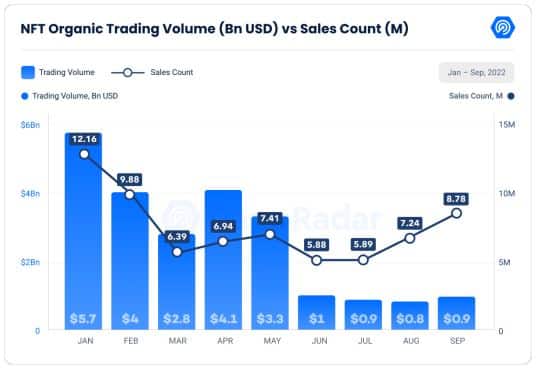A group of the Digital, Culture, Media and Sport (DCMS) Committee members from the UK Parliament decided to lauch an inquiry into NFTs. DCMS launched an investigation into the operations, risks, and benefits of NFTs.
The reason for the inquiry being the sudden development of the NFT space. This was due to the ever-growing and palpable fear among investors about the NFT marketplace being a bubble. The group cited the instance of Jack Dorsey’s first tweet that was sold for 1,630 ETH worth $2.9 billion on 22 March, 2021 but its value was a mere $280.
In the UK, the regulatory framework regarding NFTs stands as largely non-existent. Thus, the government plans to look towards regulating NFTs. The inquiry also aimed at investigating if greater regulation could protect consumers and wider markets from volatile investments in NFTs.
Announcing the inquiry, the DCMS stated,
What are the risks, and benefits of NFTs and the wider blockchain? We want to consider whether NFT investors, especially vulnerable speculators, are put at risk by the market and whether there is a need for regulation. For more details see https://t.co/C93XGBV7Ab pic.twitter.com/dvMTSwPYv1
— Digital, Culture, Media and Sport Committee (@CommonsDCMS) November 4, 2022
Most crypto-related activities in the UK aren’t regulated by the Financial Conduct Authority (FCA), the country’s financial regulator. This was despite crypto exchanges required to register with the body in the UK. The bill seeks to expand the rights of the FCA for an extensive monitoring of the cryptocurrencies and other digital assets.
Addressing shifts in the NFT Industry
The inquiry statement also underlined the shift in the NFT industry. Though global NFT sales reached $17 billion by the end of 2021, weekly NFT sales have dropped by over 90% from August 2021 to March 2022.
The DappRadar Q3 Industry Report also showed that the NFT market shrunk 67% from the previous quarter. This meant that only $2.75 billion was generated by NFT trades. However, the sales count registered a rise of 8% from the previous quarter. Yuga Labs projects continued to dominate the NFT market and as of September, they represented over 46.21% of the whole NFT market cap.
The committee chair Julian Knight said, “Now that the market is veering wildly, and there are fears that the bubble may burst, we need to understand the risks, benefits, and regulatory requirements of this groundbreaking technology.”
UK’s all over crypto and NFTs now
Last month, the UK government went ahead with an amendment to the Financial Services and Markets Bill. The Bill aimed at broadening the scope of the country’s regulatory framework with regards to cryptocurrencies. This included stablecoins.
Furthermore, UK’s new Prime Minister Rishi Sunak has also expressed support for the crypto industry. While he was the Chancellor of the Exchequer in April 2022, he stated,
“It’s my ambition to make the UK a global hub for cryptoasset technology, and the measures we’ve outlined today will help to ensure firms can invest, innovate and scale up in this country.”
The statement was issued when the HM Treasury introduced measures to recognize stablecoins as a valid form of payment and work with the Royal Mint on an NFT.


